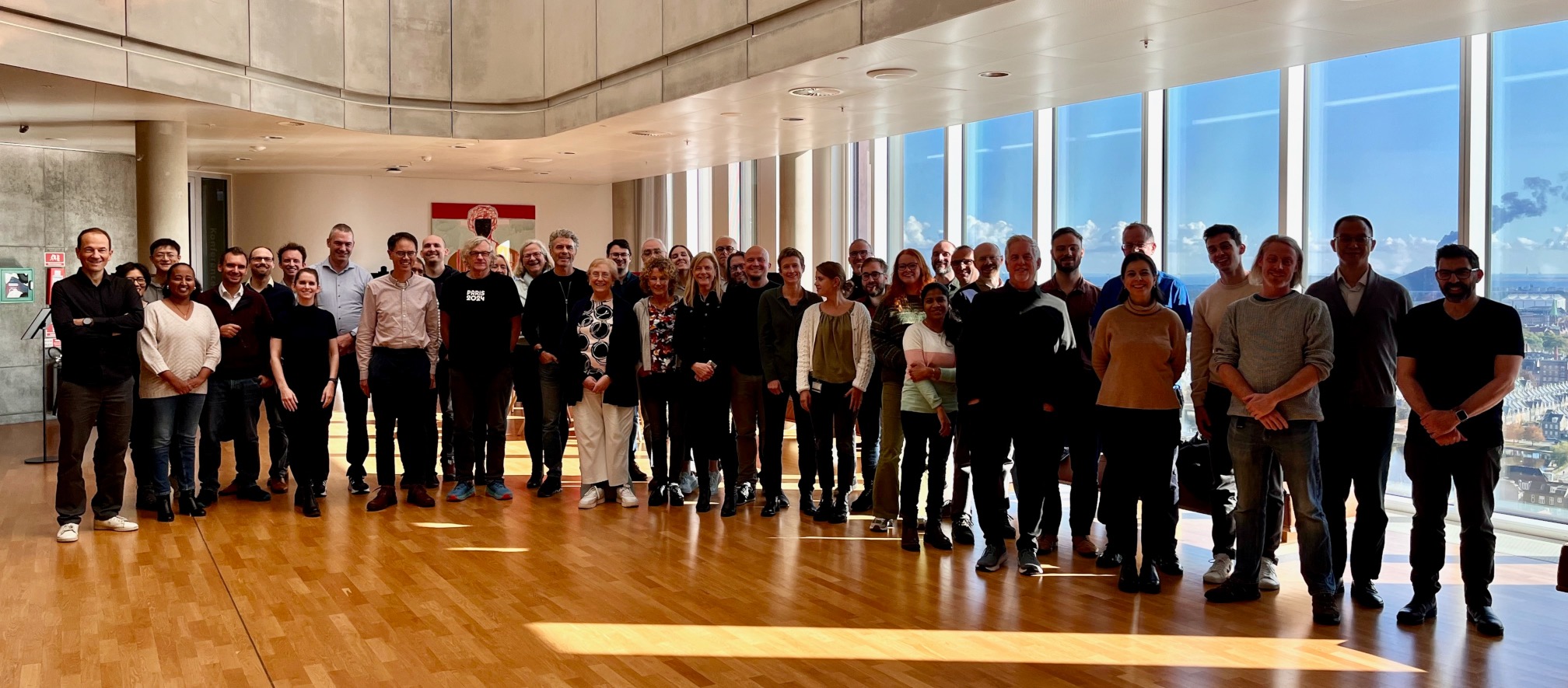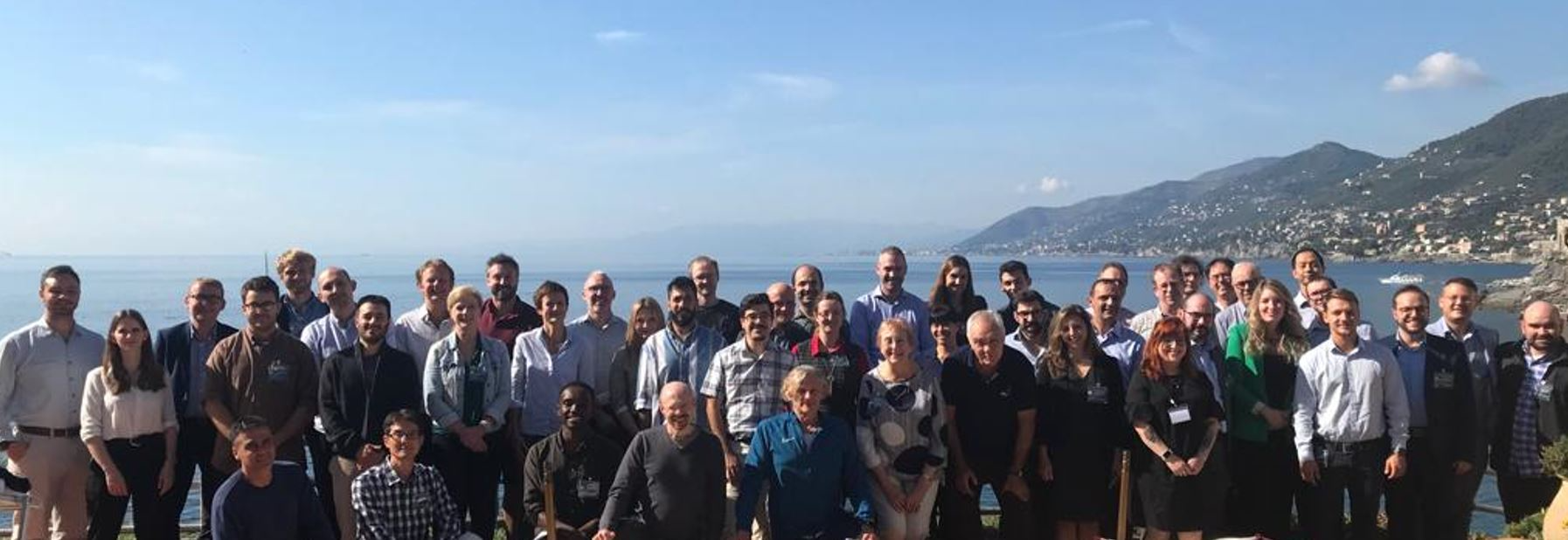What is the idea
THE PAN PROSTATE CANCER PROJECT: Many groups around the world have generated Whole Genome DNA Sequence (WGS) data. To co-ordinate this work Professor Eeles held the first Pan Prostate Cancer workshop in London on 3 October 2014. The attending groups unanimously supported the idea that the accumulated data, should be collected and compared in a common format including common storage, re-analysis through a single pipeline, and investigation to achieve a variety of scientific goals. The data collected so far includes WGS and exomes from over 2000 tumours and matching bloods, but this number is likely to expand considerably. The combined collection would include the following categories: (i) cancers from different ethnic groups: eg Caucasian, Asian, Black Caribbean; (ii) cancer from different stages of progression from normal, to organ confined disease, to metastases; (iii) early onset prostate cancer; (iv) prostate cancer from aggressive and indolent disease; and (v) prostate cancer patients managed by different treatments with information linked to long term clinical follow up data in many cases.
Rationale
This project is about providing breakthrough advances through analysis of a very large series of Whole Genome DNA data from prostate cancer contributed by many of the leading scientists and clinicians working in prostate cancer genomics. Key papers have already been published from the participating groups including papers in Nature, Lancet Oncology, Science, Elife and Nature Genetics. Many other publications have been submitted or are in preparation. Several members of this group are already participating in the Pan Cancer Analysis of Whole Genome Project (see below for details). Both in terms of its clinical behavior and in terms of the genetics within each cancer, prostate cancer is highly heterogeneous. There is therefore now a global need to carry out integrated large-scale analysis of all or most of the whole genome data from prostate cancer available worldwide. The scientific justification for this is given in the “Collaboration” sections below.
Critically this project will provide a global framework for the future analysis of even larger series of genomes as costs of DNA sequencing, storage, and sequence analysis decrease.
In addition to WGS data it should, where available, be possible to add additional layers of data including transcriptome data and methylation data. However the proposed project focuses primarily on the analysis of WGS data.
What does the idea need to be successfully executed?
Our project is modelled on the Pan Cancer Analysis of Whole Genomes (PCAWG) Project that was set up by the International Cancer Genome Consortium (ICGC), and which is co-coordinated by partners of the pan-prostate initiative (namely, Peter Campbell and Jan Korbel). The PCAWG project has collected WGS data from ~2800 cancers representing many cancer types. To execute the Pan Prostate Cancer Project, we would need consideable storage space, computing power and personnel to support it: this is the core component of the study. We plan to use existing analysis pipelines currently under development in PCAWG to reanalyze the prostate cancer data.
Collaboration
Through the analysis of WGS data from over 2000 prostate cancers and matched normal blood samples this study will have unprecedented power to address many key issues relevant to the management of men who have or who are at risk of developing prostate cancer. This would not be achievable within a reasonable time scale by any individual group in isolation. Consequently all participating groups are enthusiastic to move forward with the project. As a partnership the project will be able to address the following broad scientific themes (and presumably others, to be identified by abstracts / concept forms during early stages of this collaborative project).
- Analysis of ethnic differences in genetic alterations.
- Analysis of mutational signatures particularly in different ethnic groups and of the underlying processes contributing to the development of prostate cancer.
- Identification of clinically relevant molecular subgroups through the correlation of genetic differences with clinical data including long term follow up.
- Identification of differences between aggressive and indolent disease.
- Identification of pathogens through analysis of non-aligned DNA sequences.
- Investigation of the role of mitochondrial mutations and retrotransposons in cancer development.
- Identification of recurrent mutation in non-coding RNA and in non-gene regions.
- Interrogation of germline (blood) data, for example, to identify somatic and germline DNA alterations associated with genetic predisposition.
- Clinical questions such as the association of mutational signatures with disease recurrence and behaviour.
- probe the basis as to why certain patients respond to therapies whether hormone targeted chemo- or radiation and why some have different adverse response profiles.
- to probe the genetic crosstalk between the tumour and the tumour microenvironment and how this impinges on response to therapies especially to subcharacterize the disease based on genomic context of both the tumour and the patients hereditary genome and to develop treatment response profiles based on these subcategories.
- to uncover the range of tumour genomic heterogeneity in prostate cancer and how this impinges on the clinical course of the disease especially in the context of emergent treatment resistant disease.
- to develop an integrated portrait of tumours using multiple levels of genetic information including the transcript and epigenome.
Synergy and Uniqueness
This project is a direct and natural extension to the ICGC Pan Cancer (PCAWG) Project focusing on the analysis of genomes from 2800 cancers of many different types. The PCAWG project includes 105 non-representative prostate cancer genomes and is underpowered to address several critical problems relevant to prostate cancer clinical management. There is therefore an urgent need to take the next step and undertake a global project that will integrate all WGS data from prostate cancer.
Meetings
Bologna 2025

Copenhagen 2024

Sydney 2024

Berlin 2023

Madrid 2023

Italy 2022

New York 2019

Berlin 2018

London 2018

Melbourne 2017

Paris 2017
Boston 2016
London 2015
London 2014